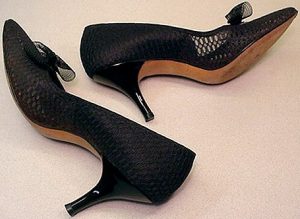An agency receptionist was sent home from work at PWC the accountants firm (though supplied by a third party) after refusing to wear high heels, the BBC has reported.

Nichola Thorpe was told by managers to wear shoes with at least a two-inch heel and was laughed at when she complained that male colleagues were not asked to do the same (which could be sex discrimination).
She didn’t want to wear high heels throughout the day for comfort reasons and argued that it didn’t impact her ability to do the job.
She has started a petition to Parliament calling for the law to be changed so women cannot be forced to wear high heels to work. 10,000 people have signed it so the government will now have to respond.
The legal position is that employers can dismiss staff who do not comply with reasonable dress code standards and there can be different standards for men and women, as long as there’s an “equivalent level of smartness”. This particular issue has never been ruled on, though our bet is that an employer would be wrong to insist on this level of detail to footwear from female employees.
We believe that high heels have a particularly sex-skewed purpose. As relayed in the film Kinky Boots “Sex is in the heel. Stilettos require constant balance from the upper leg causing the muscles of the backside to tense and appear pert and ready for mating.”
Her employer said that it would change its policy and PWC distanced itself from the decision.
